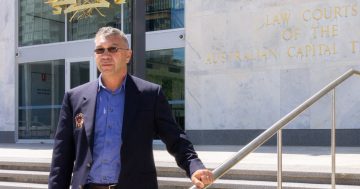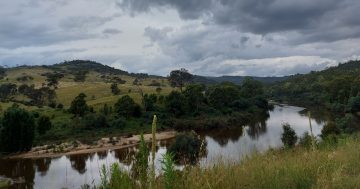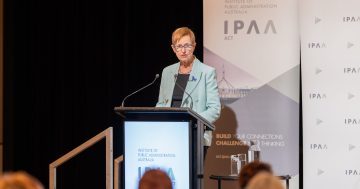
View over Namadgi National Park from Mt Ginini at sunset. Photo: File.
There are growing indications that the ACT Government will move towards a treaty with traditional owners as similar processes begin in Victoria, but where would the negotiations start?
Land rights are the answer, according to Dr Ed Wensing, who also says we won’t make progress on treaty discussions without a truth and healing commission and recognition that previous agreements are flawed.
In a paper published by The Australia Institute, Dr Wensing makes several key findings, including that the transfer of the ACT from NSW to the Commonwealth in 1911 may not have extinguished native title, that there has been no final judicial decision on the issue and that the 2001 Namadgi National Park Agreement actively restricts native title claims.
“I started to focus on this when the ACT declared Reconciliation Day as a public holiday,” Dr Wensing says.
“I began wondering whether native title had ever been extinguished in the ACT. The more I looked, the more I discovered neglect, denial and obfuscation.
“Forty-four per cent of the ACT was Crown land in 1911. Under native title law, that doesn’t get extinguished. There have been a number of claims, but they’ve been discarded along the way for various reasons, so we just don’t know what the legal standing is.”
In 2001, Ngambri/Ngunnawal parties signed a 99-year special Aboriginal lease over Namadgi National Park proposed by the ACT Government. The agreement was that the ACT Government would work in partnership with the management of Namadgi National Park and, in return, the signatories would give up a native title claim that was then lodged in the Federal Court.
But Dr Wensing says that the parties didn’t receive sufficient independent legal advice and that the ACT Government has not delivered on the terms of the agreement. He believes the Namadgi agreement should be voided.
“The ACT Government could put the native title issue on the table for a treaty,” Dr Wensing says. “You don’t need a treaty for other outcomes about health and wellbeing. Treaties are about bringing conflicting parties together to resolve past grievances. In this case, that would most likely be land rights and stolen generations.”
A truth and healing council could be formed with the powers of a Royal Commission to investigate ongoing injustices. And Dr Wensing says that given all three major political parties in the ACT have made commitments to move forward on reconciliation, the proper course is “a united and dignified discussion on the floor of the Assembly, not a public spat”.
“We shouldn’t engage in conversations that seek to divide the traditional owners. That is not our business,” he says.
A thorough search and analysis of historical land tenures and transfers should be made, and any related legal opinions made public.
It would be a long process: the South West Native Title agreement, which involves around 30,000 Noongar people and covers approximately 200,000 square kilometres of the south-west region in Western Australia, took 17 years to complete.
“The truth is that we have failed the Aboriginal peoples of this region in the past. We cannot erase the past, but we can change the future,” Dr Wensing says.















